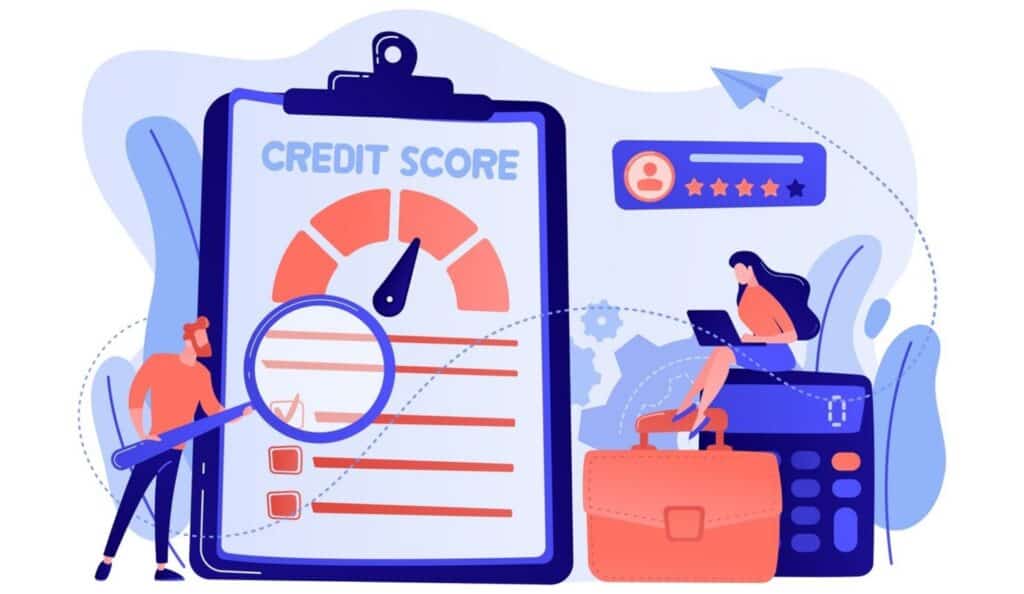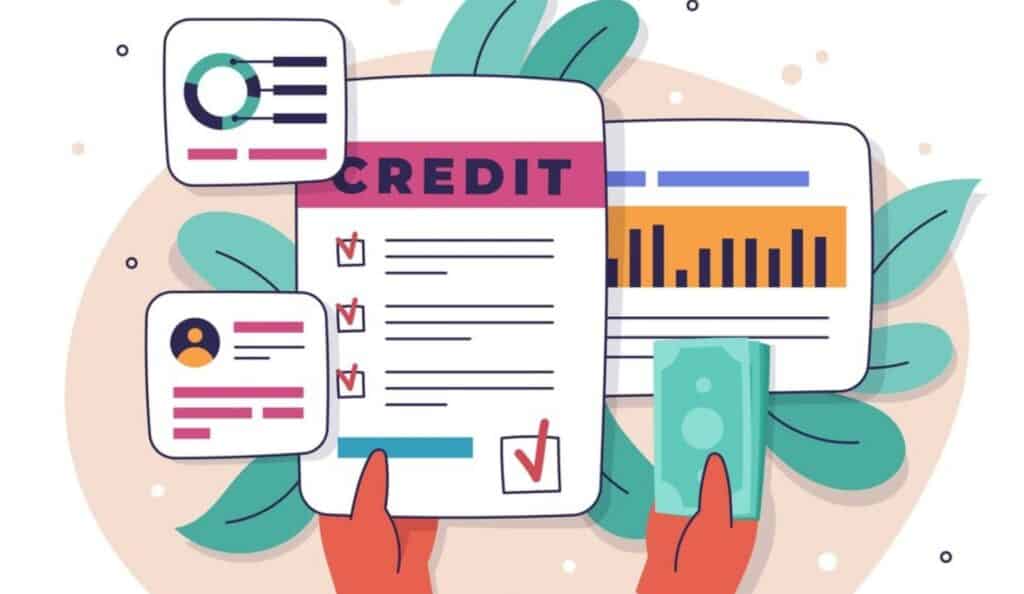
By Cindy Gardea March 27, 2025
Improving credit scores and having a good business credit score are very important for getting loans, gaining trust from suppliers, and staying stable over time. It also helps you make money, close better deals, and build your company. But, it can be difficult for many business owners to raise their credit score. Building up business credit is an important step for new small businesses because it separates credit from personal credit, teaches the benefits of having good credit, and separates the owners from the business.
Your business credit score is not just a number and is incredibly crucial for the success of your business as it helps lenders, suppliers, and creditors determine if you can pay your bills on time. Building and sustaining good business credit can be more difficult than maintaining a small business, but it pays dividends when lenders believe your business is a safe option and you’re already ahead of the game if you started early.
Improving Your Credit Score and Calculating it

Improving Credit Score
Credit scores are models that help predict how likely a business is to pay back money. To improve your business credit score, check your credit report often, make sure it’s correct, build credit with companies that report your payments, the correct credit card processing, and pay your bills on time, moreover, some software helps you improve your credit score. Credit repair software can enhance your credit score by identifying errors, disputing inaccuracies, and offering personalized advice to improve your credit report Remember, not all companies share payment details, and how you pay past creditors can greatly affect your score.
Calculating Credit Score
Business credit scores range from 0 to 100, with 0 being high risk and 100 being low risk. These scores are based on your payment history, how much money you owe, how much credit you use, changes over time, recent public records, and some personal information. Experian’s system requires some information, such as at least one credit line or some personal data, before it can generate a score. Without these, you will not receive a score.
Tips for Improving Credit Scores

Structuring Business
For structuring your small business one way is by setting your business up as an LLC or corporation to keep your personal and business money separate. Once you register your business get a Federal Employer Identification Number (EIN) and do the things your state, county, and city require.
Monitoring Credit Report
Keeping track of your business credit report can protect and improve your credit score. You should review your business credit report for accuracy every few months. One brainsick act away from taking your company down. If you pay off your business credit card monthly, using your credit card for the regular expenses of your business is a simple method of building your business credit. It allows you to identify errors, recognize any questionable activity, and see what lenders can see, which is by reviewing it periodically. This knowledge enables you to make smarter financial choices and revise your plans as needed. To keep track of your credit score properly schedule regular reviews, use reliable services such as Nav, search for errors, and know vital funding information such as your payment history and credit usage.
Also, having a clean credit profile means no surprises and better loan options. These can bring your score down; have been known to include incorrect addresses or fraud and therefore check your credit report regularly for errors. If you see anything that’s inaccurate, dispute it with the credit bureau. Knowledge of your credit status helps you make prudent financial decisions.
Establishing A Business Website and Setting Up an Account
Having a business website goes a long way in ensuring lenders consider your company a legitimate one. If they check your site and presence online, that’s step one in gaining a loan. Creating a beautiful website makes you look serious about your business.
Setup and use a bank account dedicated to your business to manage your company’s money such as paying employees and bills
Preparing a Detailed Business Plan
A detailed business plan lays out everything from market research to expected profits, providing lenders with a better picture of your business. Furnishing important financial documents, from balance sheets to tax returns, allows them to evaluate the risk of lending to you. These documents are often needed for small business loans.
You won’t be able to borrow money from lenders typically without a clear business plan. This plan contains your company’s goals, strengths, and weaknesses, and what sets it apart.
Relatively bigger for small business credit scores. These tips will help increase your credit score so you can obtain the necessary funding for growth.
Business Listed in Online Directories
Seeing your business listed in the online directories can make it seem more trustworthy, as well as help customers find you. Calling a business phone by contacting one for your mobile phone or buying new ones for your new business email and website to enhance your brand on the web.
Establishing a Credit Line with Vendors
Work with at least five different vendors or suppliers to build credit for your company to use when buying from them. Ask them to share your payment history with credit reporting agencies.
Paying Bills on Time
The most effective thing you can do in act build your credit score is to pay your bills on time. It demonstrates you are financially responsible, and builds trust with lenders. Set up a payment plan, use account tools for alerts, and monitor bills. This helps users avoid missed payments and additional fees, allowing better management of cash flow.
One way is to pay down debts with the highest interest rate, and another is to check the payment terms or terms for loans regularly. A good payment history proves to lenders that you can be trusted, and slowly builds your credit profile over time.
Separating Personal Credit from Business Credit
For sole proprietors and general partnerships, issues with personal credit can influence how lenders look at your business. Open a separate account for your business to avoid blending your personal and business finances this could lead to complications with taxes down the line, save some money for emergencies and business taxes, and then use a business card for business expenses.
Stay on top of record keeping to demonstrate your business is its own separate entity. This distinction is vital for building your business credit score. More than that, having separate accounts for business vs. personal use can help ensure your business credit score isn’t adversely impacted by any personal money troubles.
Improving Business Credit Score
Business credit scores depend on the industry and how long a business has been operating. Even if a business has had credit for a long time, credit agencies may still watch it closely. To build a business credit score, sign up with credit agencies like Dun & Bradstreet to get a DUNS number, which lets lenders check the credit report. It’s helpful to get sellers and creditors to report payment history to at least one agency, as good payment records can improve a business credit score.
A business line of credit can provide your small business with financial support for unforeseen circumstances. It can give you fast money if your equipment breaks, you require repairs or you must pay people or bills in downtime.
Managing Debit-to-Credit Ratio
Keeping a low debt-to-credit ratio (DTR) is important for a better credit score. This ratio shows how much of the available credit is being used, and it’s best to keep it below 30%. To manage credit use well, make smaller monthly payments, pay off high-interest debts first, ask for higher credit limits, and try not to take on new debt. Frequently paying down balances and spending less can help keep the ratio low. Increasing available credit while controlling spending can also help lower the ratio. Regularly checking and managing this ratio helps keep finances stable and supports long-term financial health.
Moreover, to improve your credit score, keep your credit use low. This shows lenders that you are financially stable. Always pay on time, manage your debt ratio, ask for higher credit limits, and use your credit accounts regularly. Not using your accounts can lower your score, so it’s important to maintain good habits for long-term financial health.
What to do and not to do for Small Business Credit

The first step in how to improve your company’s credit rating is to choose vendors and suppliers who communicate with credit agencies, review your financial logs monthly, educate yourself about business money and credit management, select a bank that understands small businesses, and pay your bills on time.
Keep business and personal money separate; conform to the laws of your area, and pay your taxes. It was, and learning more about business finance and managing your credit is extremely useful as well as finding a bank that gets small business challenges. These steps can help establish a solid credit history and improve your business’s credit.
Conclusion
To make your company’s credit rating better, pick vendors and suppliers that share information with credit agencies, check your financial reports every month, learn about business money and credit management, choose a bank that knows small businesses well, and pay your bills on time.
Keep your business and personal money separate, follow the laws of your area, and pay your taxes. Learning about business finance and credit management is very important, and finding a bank that understands small business challenges is helpful. These steps can help you build a good credit history and improve your business’s credit.
